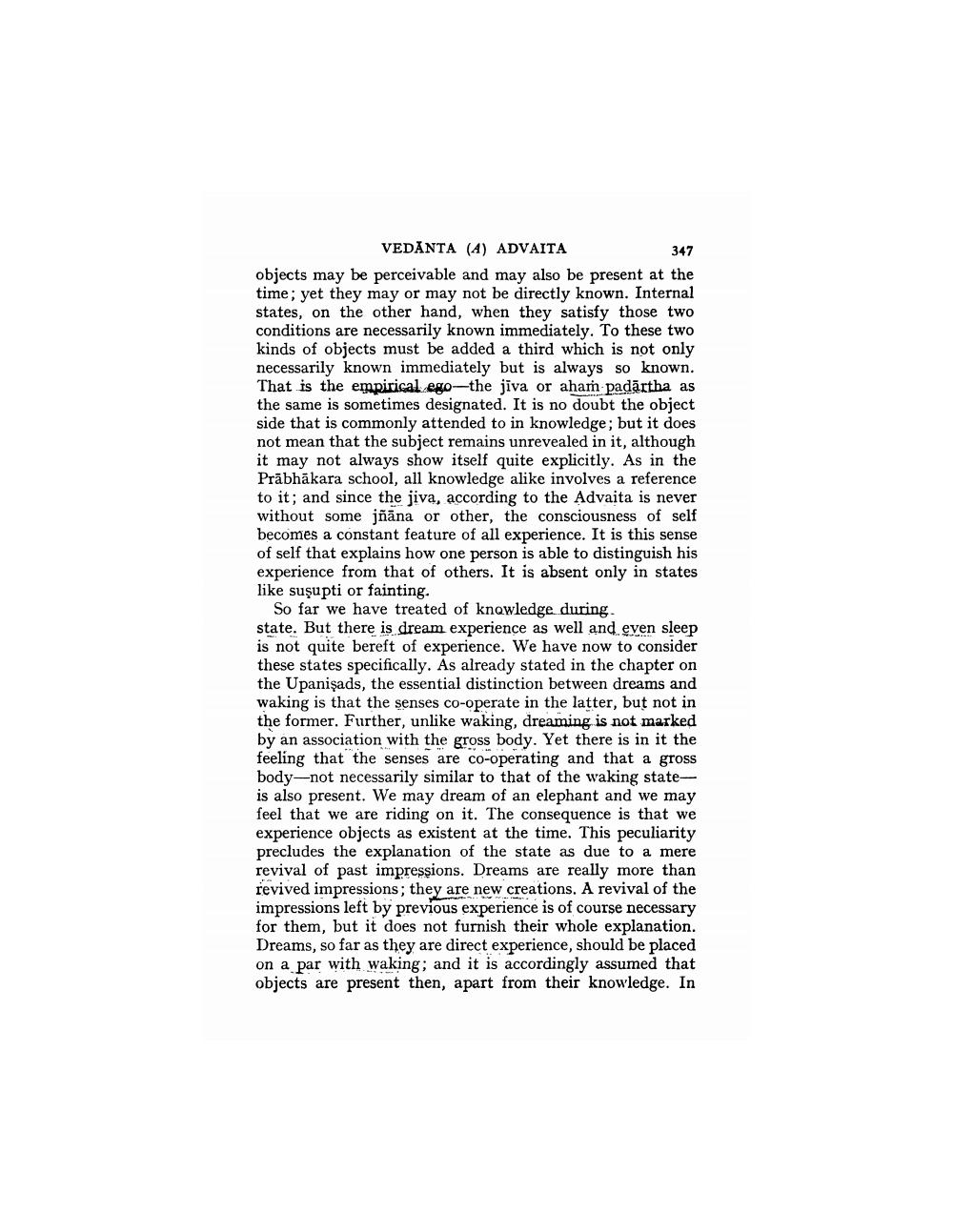________________
VEDANTA (A) ADVAITA
347 objects may be perceivable and may also be present at the time, yet they may or may not be directly known. Internal states, on the other hand, when they satisfy those two conditions are necessarily known immediately. To these two kinds of objects must be added a third which is not only necessarily known immediately but is always so known. That is the empirical ego-the jīva or aham padārtha as the same is sometimes designated. It is no doubt the object side that is commonly attended to in knowledge, but it does not mean that the subject remains unrevealed in it, although it may not always show itself quite explicitly. As in the Präbhākara school, all knowledge alike involves a reference to it, and since the jiva, according to the Advaita is never without some jñāna or other, the consciousness of self becomes a constant feature of all experience. It is this sense of self that explains how one person is able to distinguish his experience from that of others. It is absent only in states like suşupti or fainting.
So far we have treated of knowledge. during state. But there is dream experience as well and even sleep is not quite bereft of experience. We have now to consider these states specifically. As already stated in the chapter on the Upanişads, the essential distinction between dreams and waking is that the senses co-operate in the latter, but not in the former. Further, unlike waking, dreaming is not marked by an association with the gross body. Yet there is in it the feeling that the senses are co-operating and that a gross body-not necessarily similar to that of the waking stateis also present. We may dream of an elephant and we may feel that we are riding on it. The consequence is that we experience objects as existent at the time. This peculiarity precludes the explanation of the state as due to a mere revival of past impressions. Dreams are really more than revived impressions; they are new creations. A revival of the impressions left by previous experience is of course necessary for them, but it does not furnish their whole explanation. Dreams, so far as they are direct experience, should be placed on a par with waking; and it is accordingly assumed that objects are present then, apart from their knowledge. In




